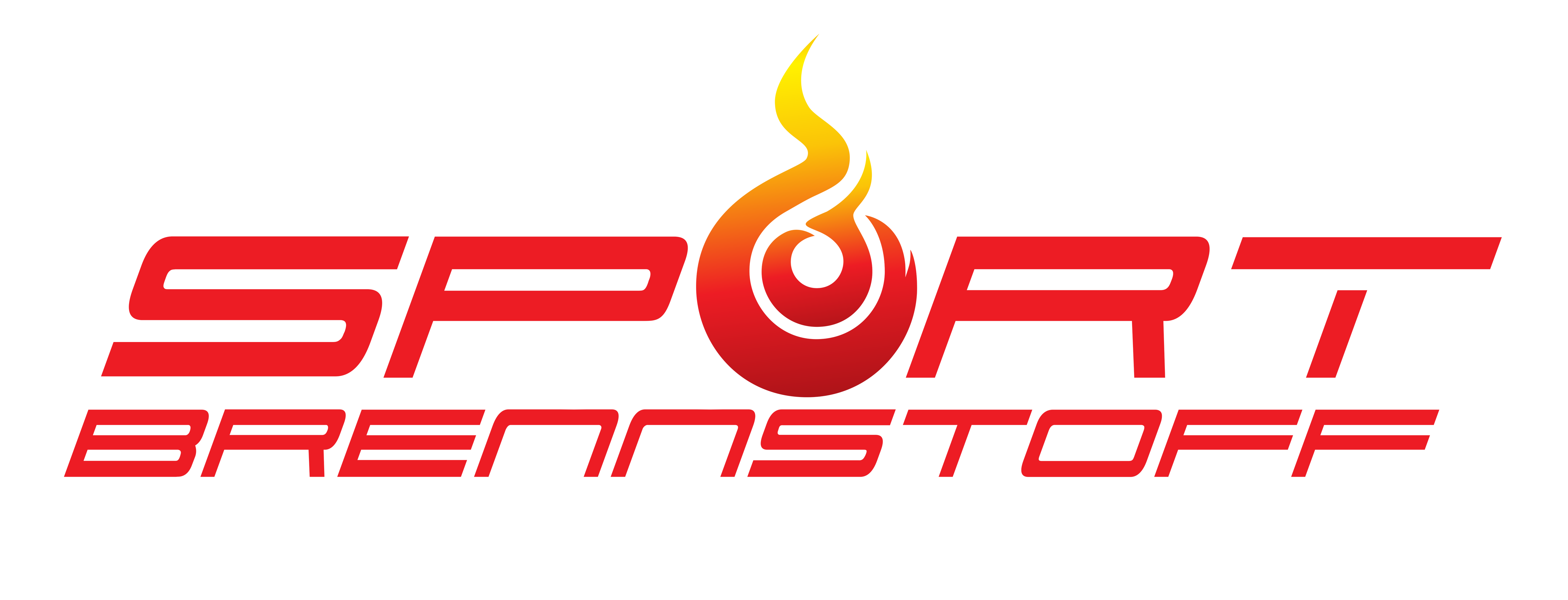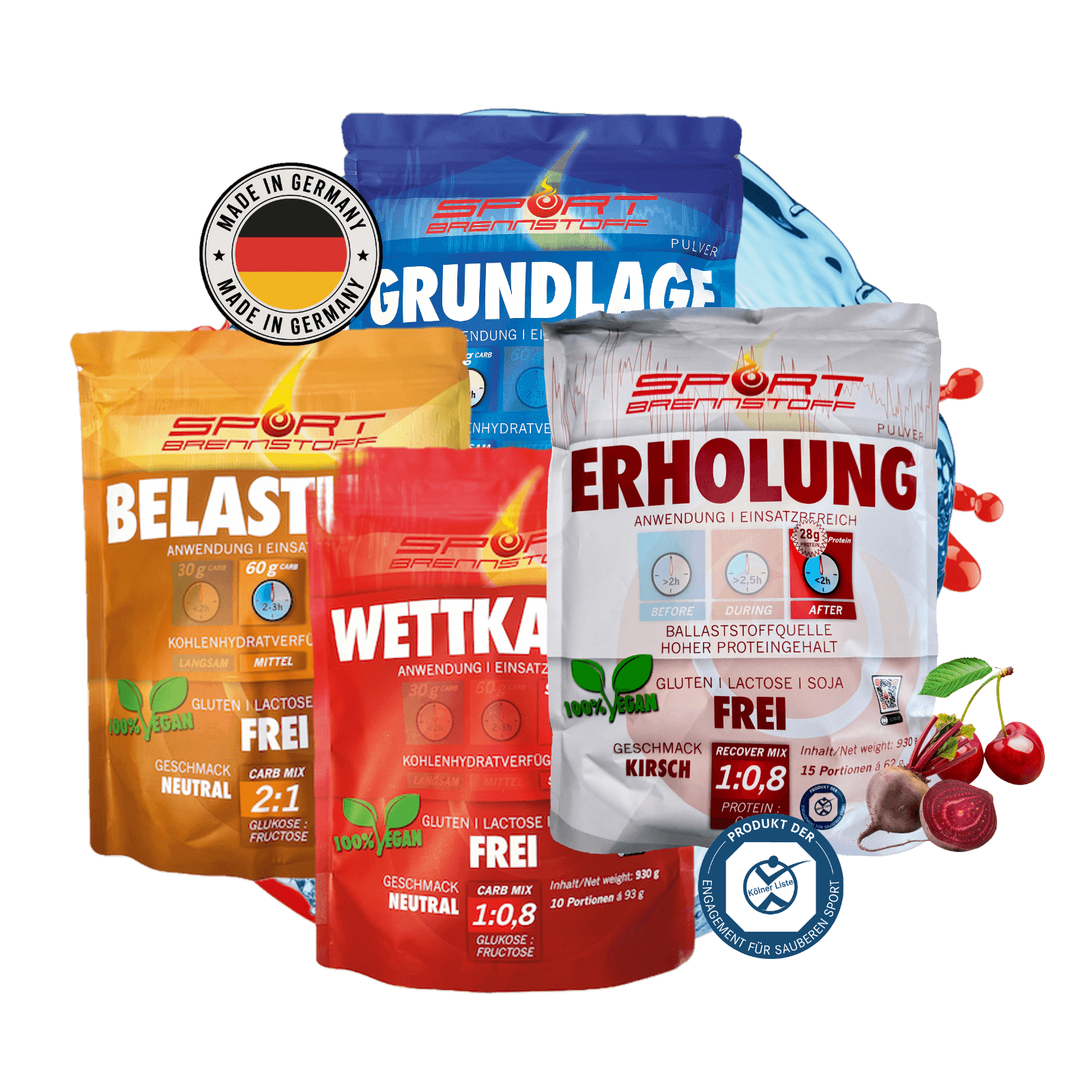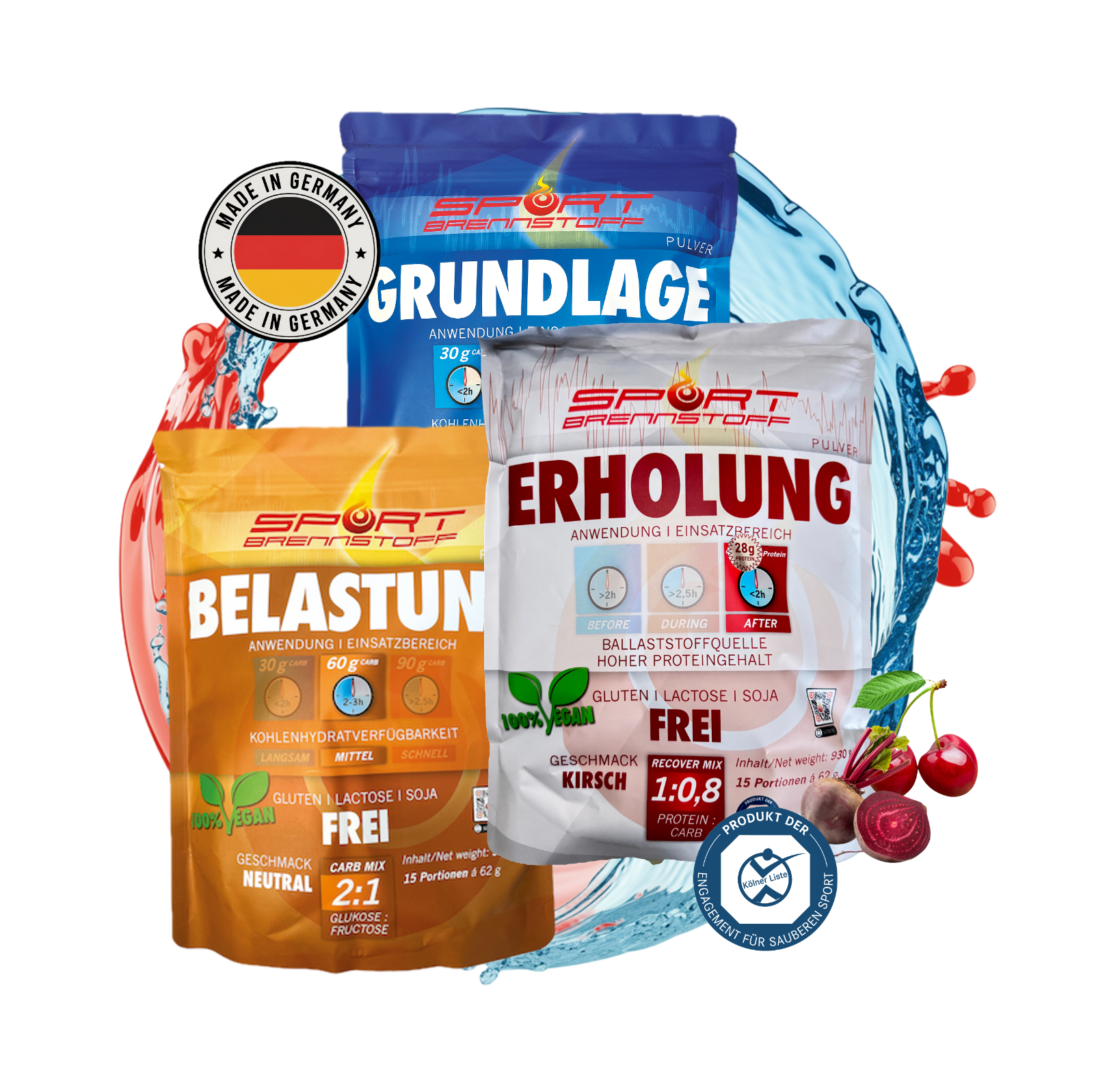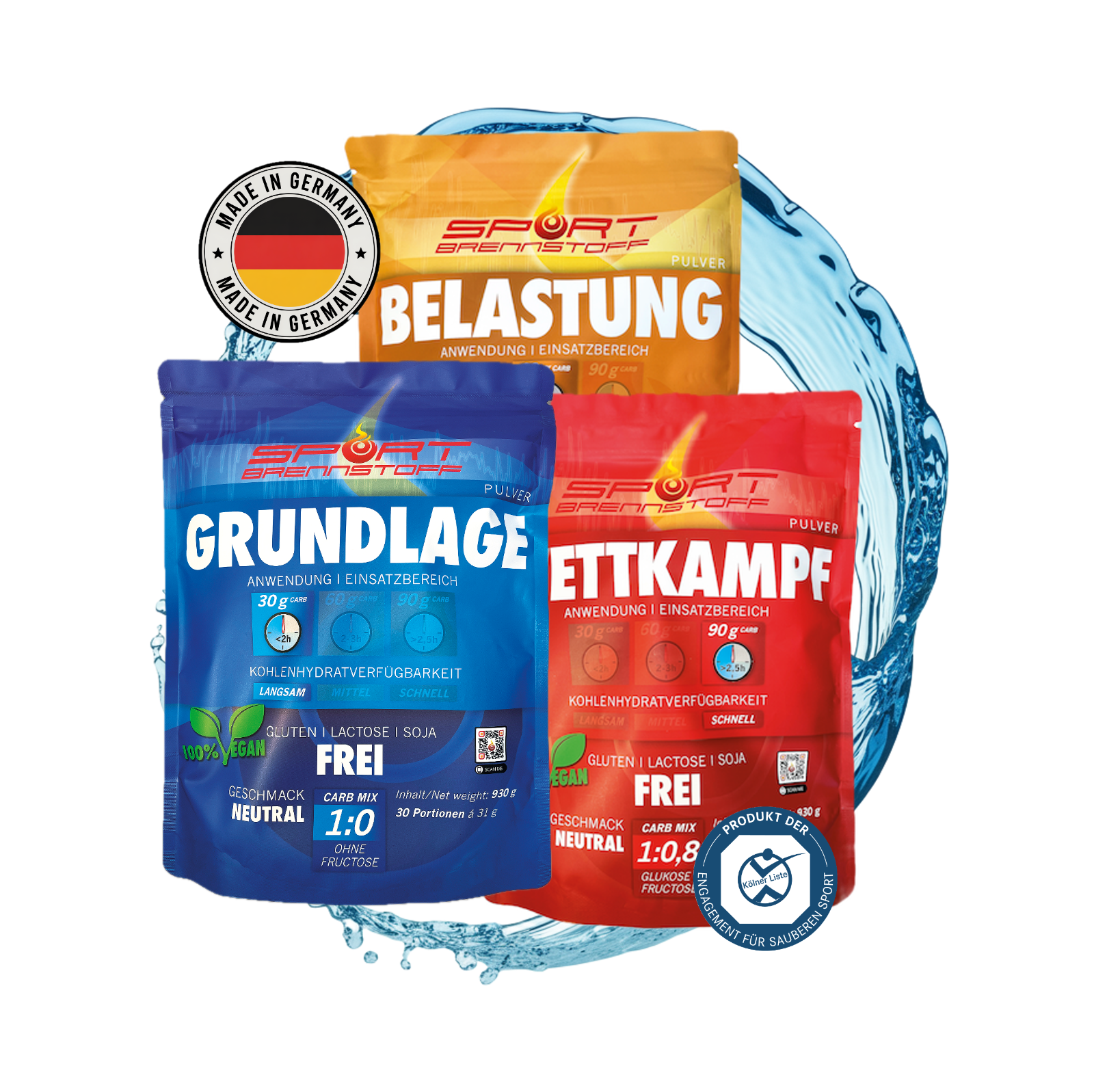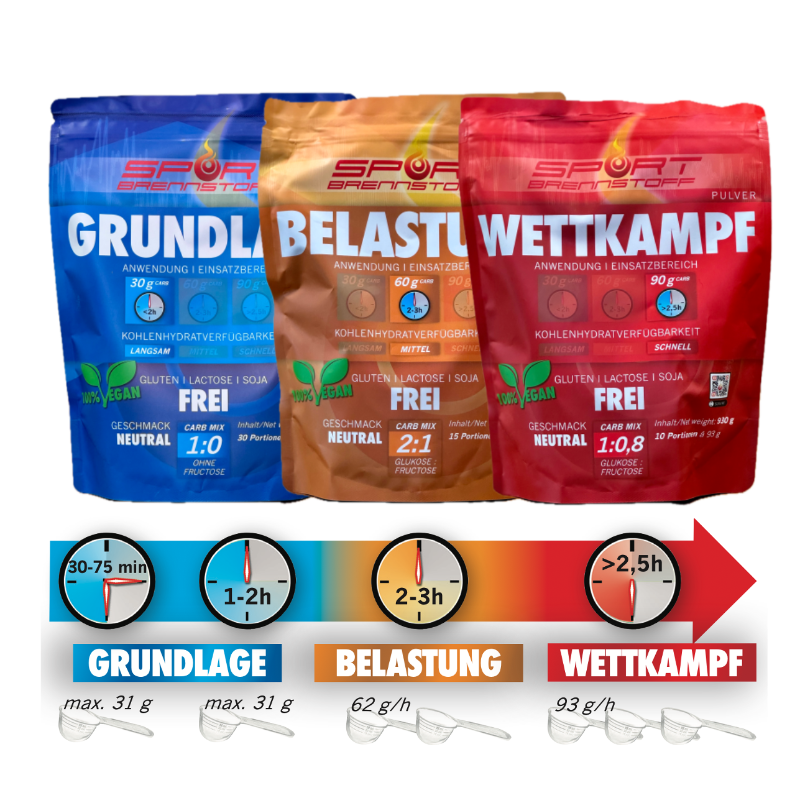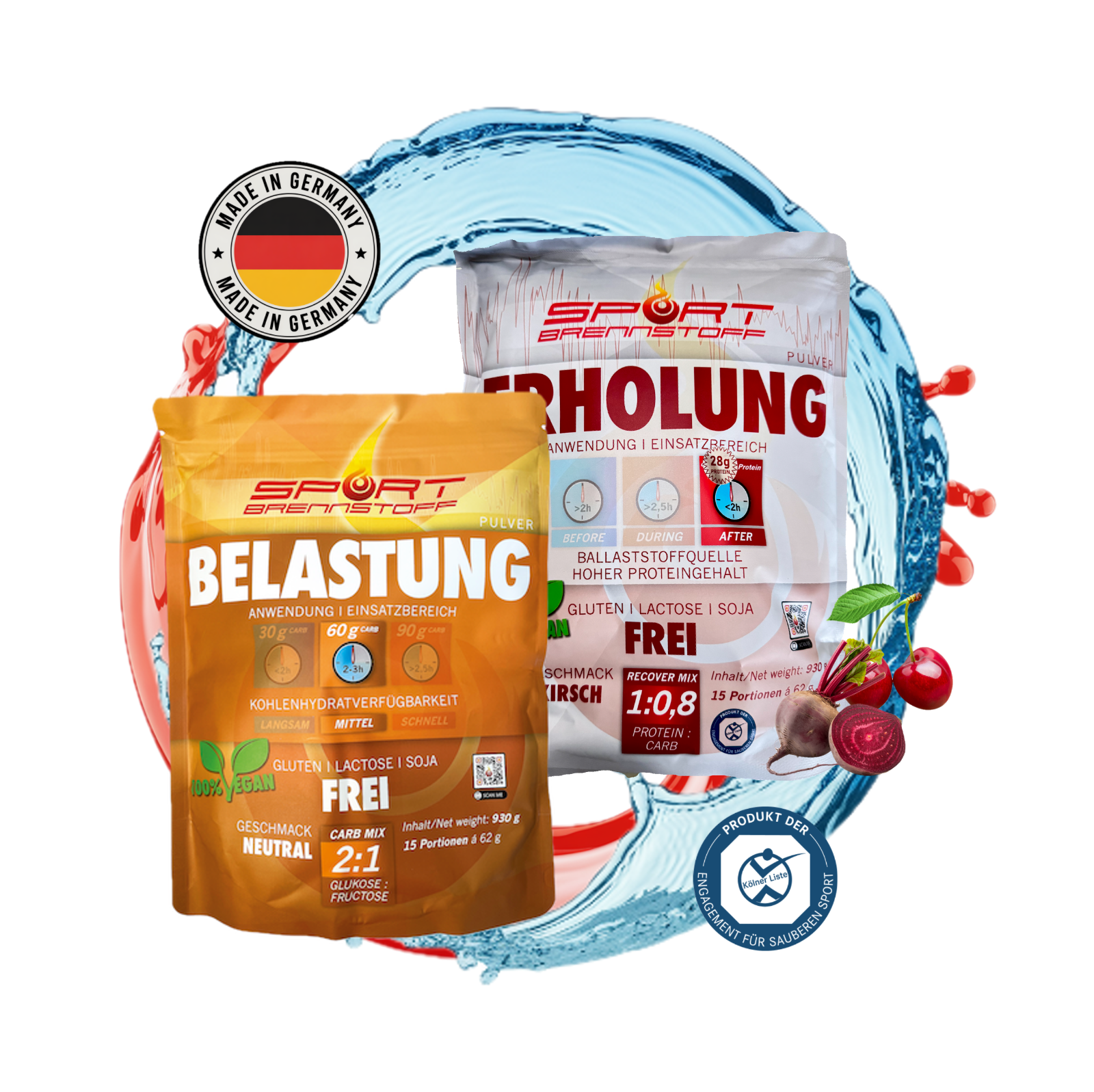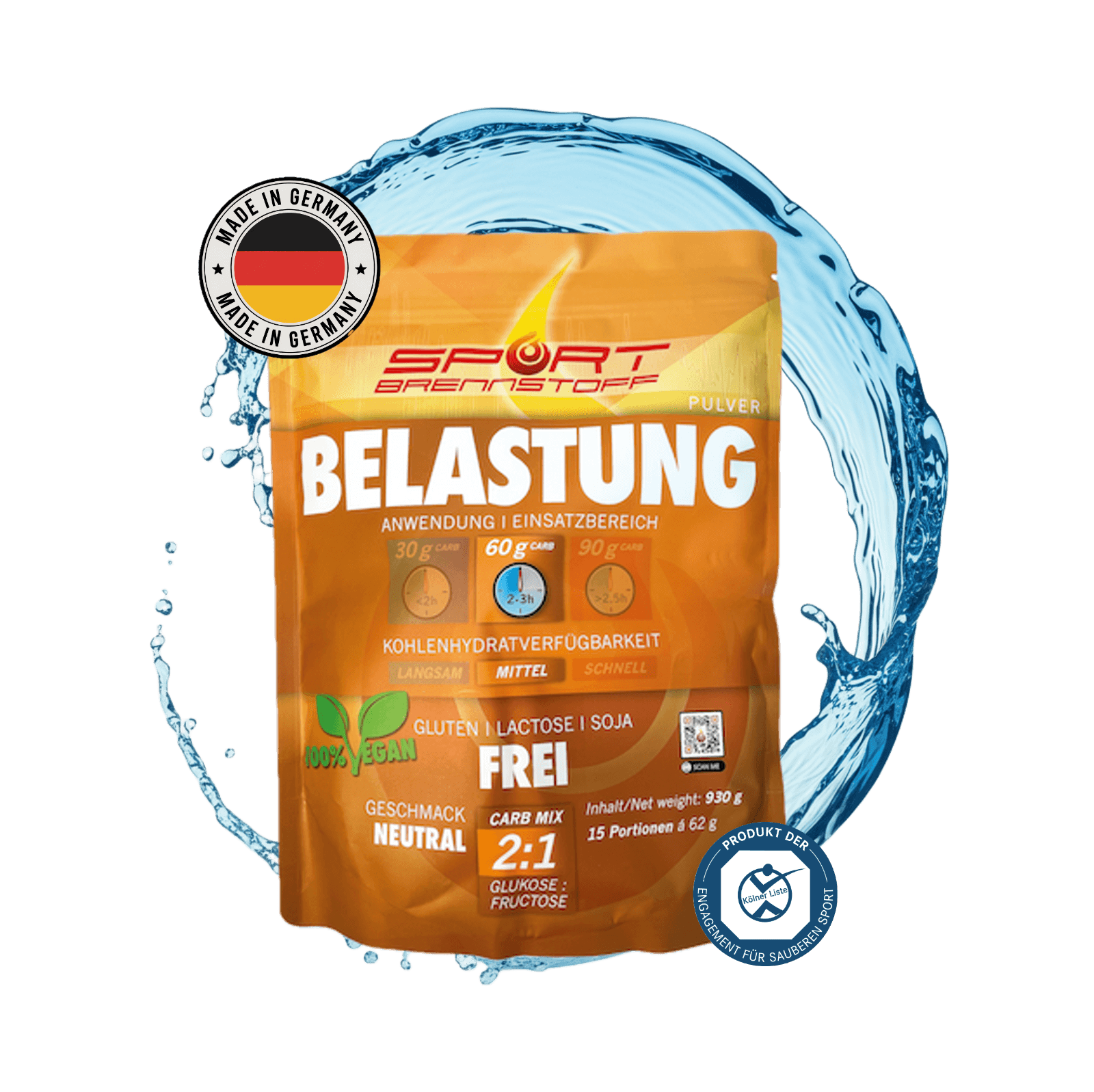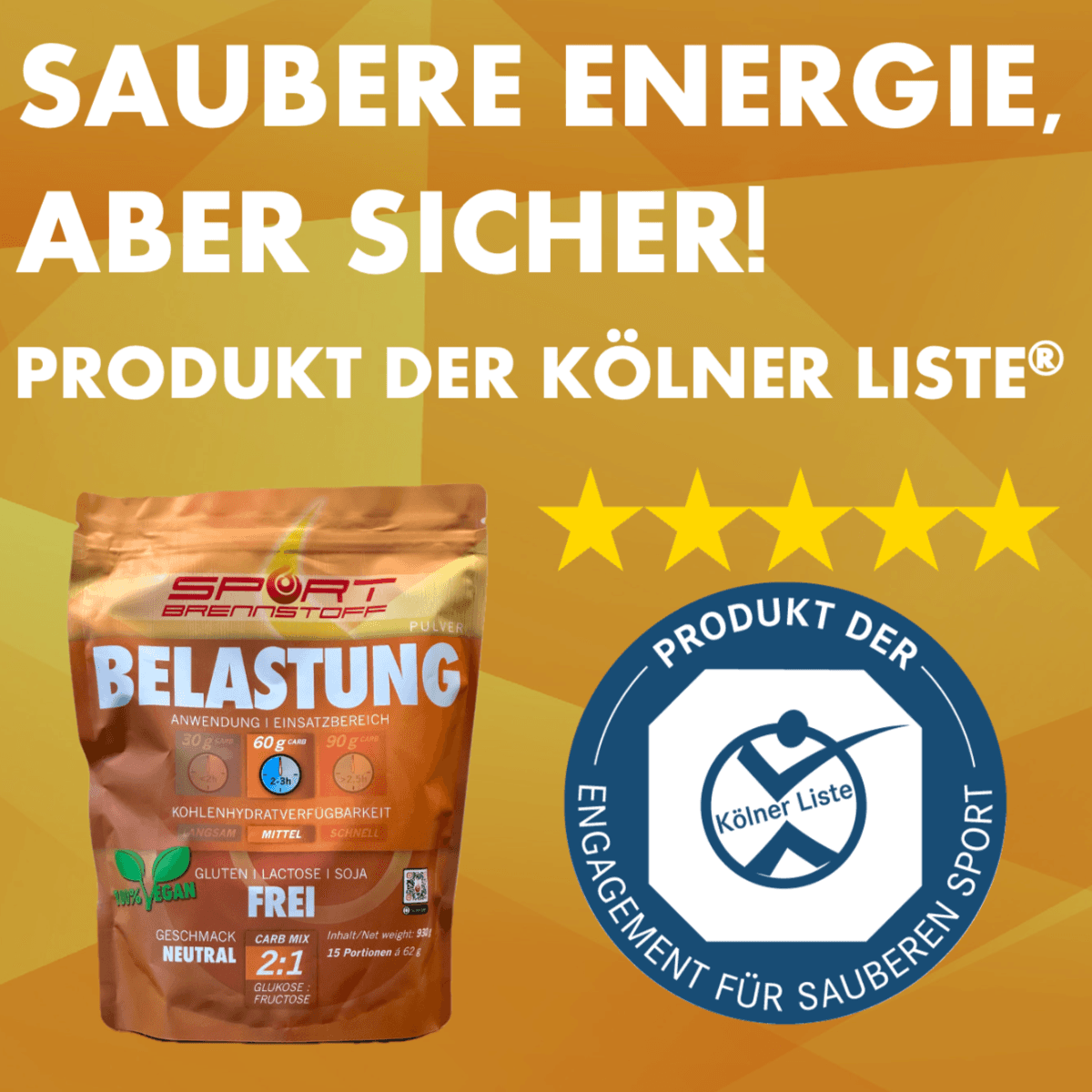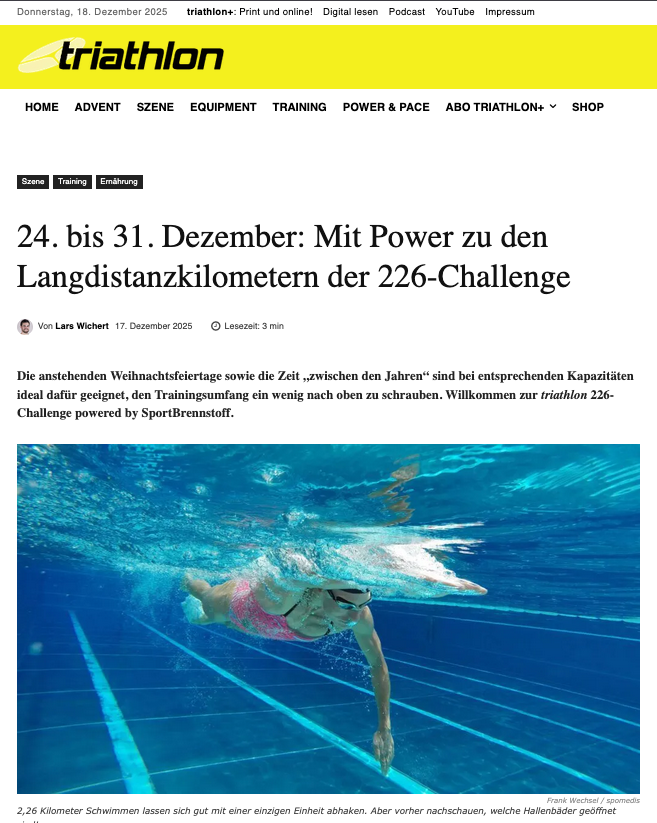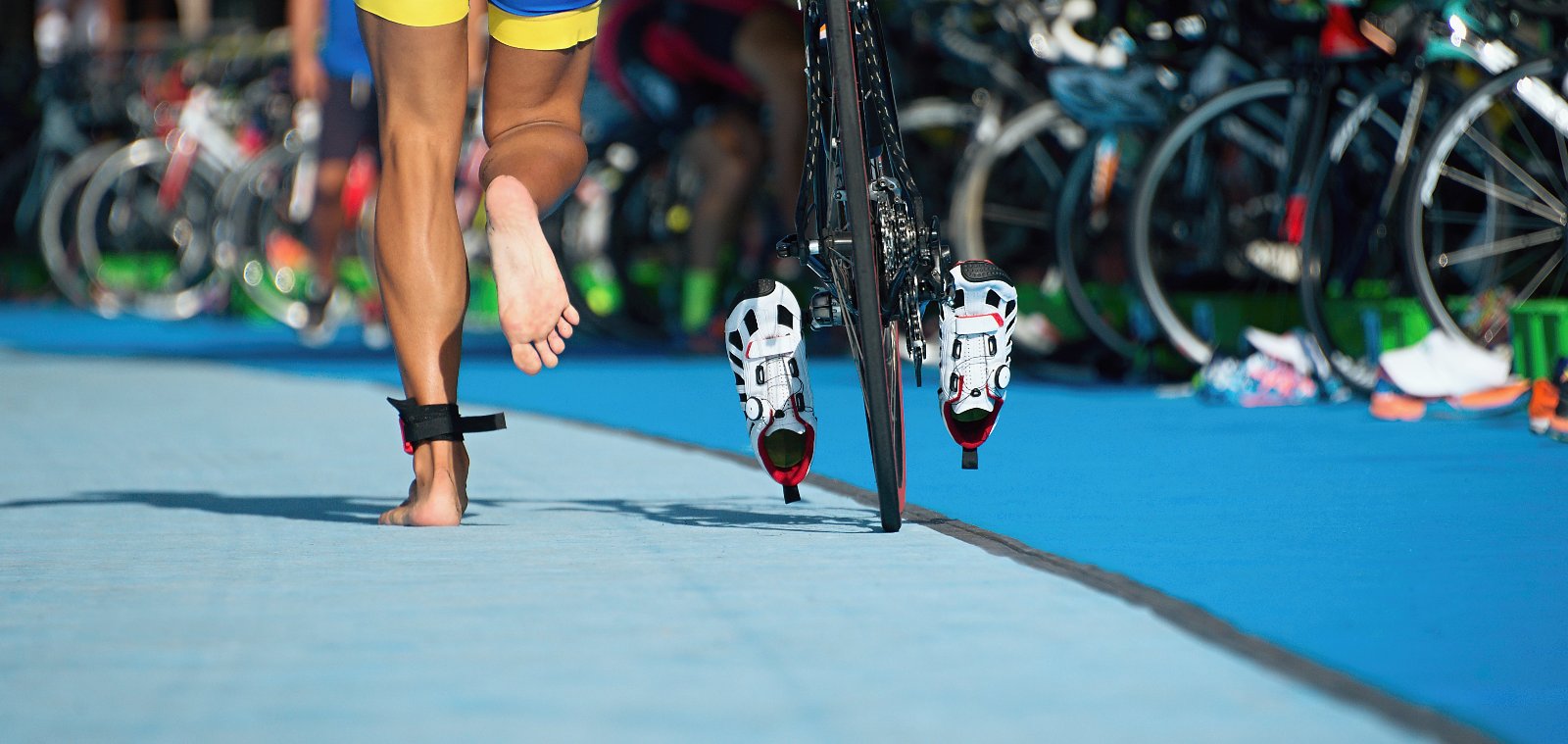
Sport-Specific Nutrition in Sports
Every sport is individual and challenging. A special discipline is nutrition before, during and after sport. A balanced diet is the basis, but not enough to use the strain for optimal performance development and to avoid injuries.
Triathlon sport
Triathlon is a multi-sport discipline that consists of three components: swimming, cycling and running. Each of these disciplines has specific requirements for sports nutrition, which enables athletes to optimize their performance and successfully complete the long competitions.
- High energy demand
- Carbohydrates as the main energy source
- Sufficient protein intake
- Fats for long-lasting energy
- fluid intake and electrolytes
- timing of food intake
- Choice of sports nutrition during the competition
- Individual adjustments
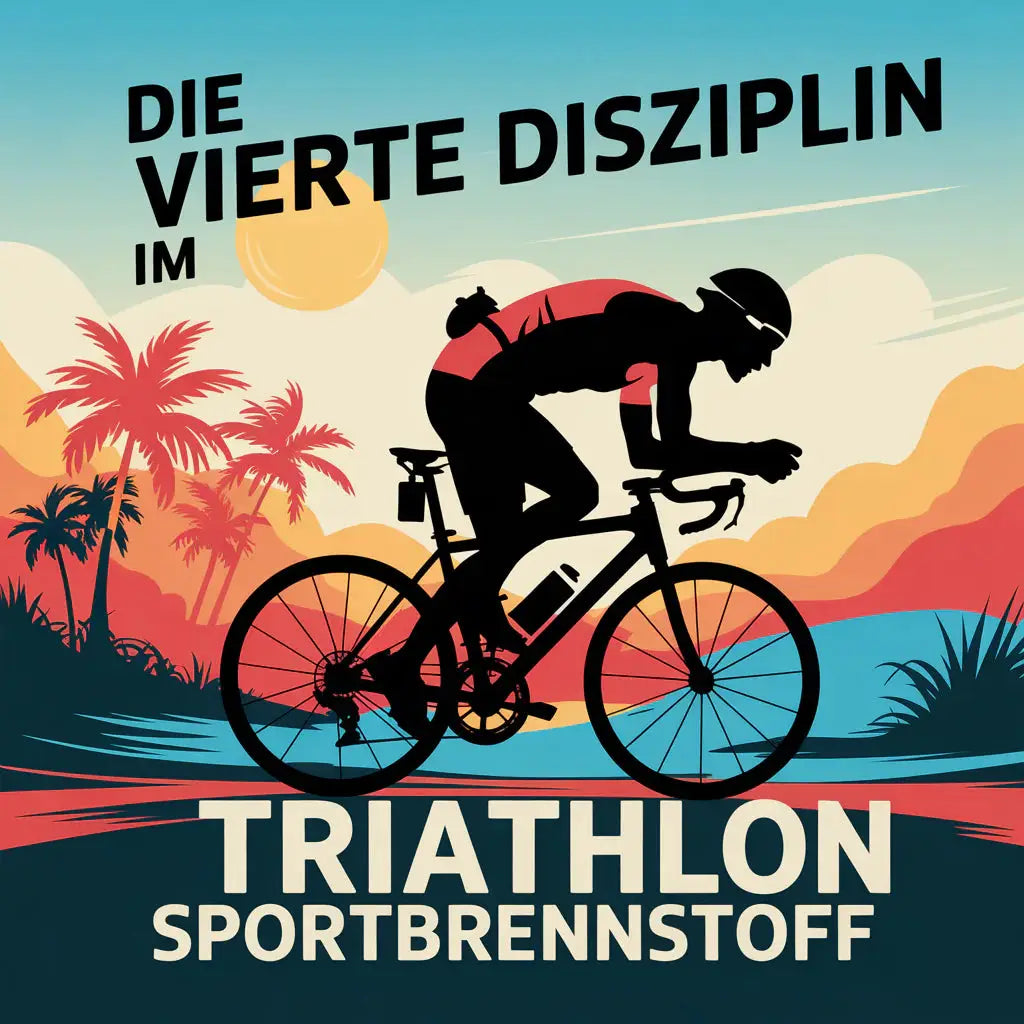
Sports nutrition in triathlon
Sports nutrition in triathlon has some specific features tailored to the demands of this sport. This is particularly due to the fact that it is not just one sport, but three with completely different demands and needs. Specific sports nutrition in triathlon naturally refers to swimming, cycling, and running. Therefore, I will only address the specific aspects here. Here are the most important aspects of nutrition before, during, and after exertion: Fundamentally, it should be noted that in triathlon, especially in long-distance events, a strict nutritional regime during the race should be observed. The body's energy stores are insufficient to cover the long distance. Therefore, sufficient energy supply is essential.
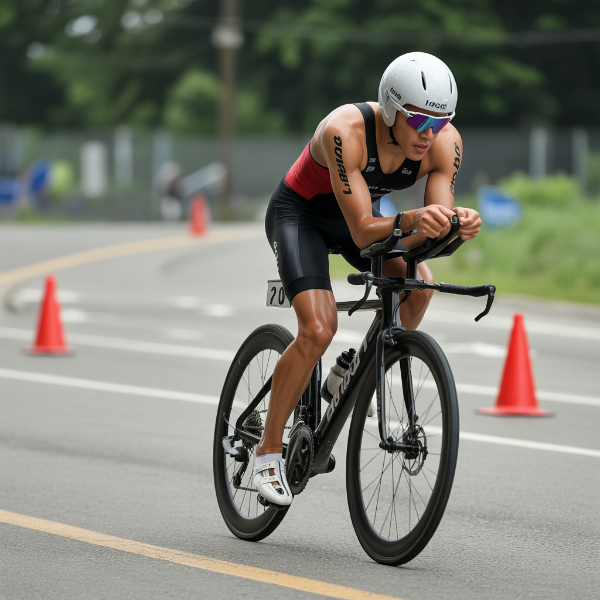
Before the stress
🧆High-carbohydrate diet: Glycogen stores should be replenished before training or competition. A high-carbohydrate diet with complex carbohydrates such as whole-grain products, green vegetables and sweet potatoes is recommended. DGE
___
🥪Light meals: It is advisable to eat a light, easily digestible meal 2-3 hours before training or competition to avoid digestive problems. Choose easily digestible carbohydrates, e.g. white bread with honey.
___
🍼Hydration: 400 to 600 ml of fluid should be consumed 20 to 40 minutes before the start of training or competition. A carbohydrate-rich, isotonic drink is best.
___
🥣In the morning before a longer run or a longer cycling session in training, choose a mix of long- and short-chain carbohydrates.
___
It is important to consume the light meal before the race/training well in advance. This ensures that it has already been digested and that there are no food residues left in the stomach or small intestine, so as not to impair energy supply during exertion.
___
Before swimming in the race, drink plenty of fluids and already take in 60g to 80g of carbohydrates in small sips. Unfortunately, there is no opportunity to take in anything during the swim. That has to happen in the transition area or on the bike. But be careful: After swimming, there can sometimes be slight irritation of the gastrointestinal tract due to the change in body position (horizontal to upright). Therefore, perhaps neutralize for a few minutes on the bike first and then start taking in food.
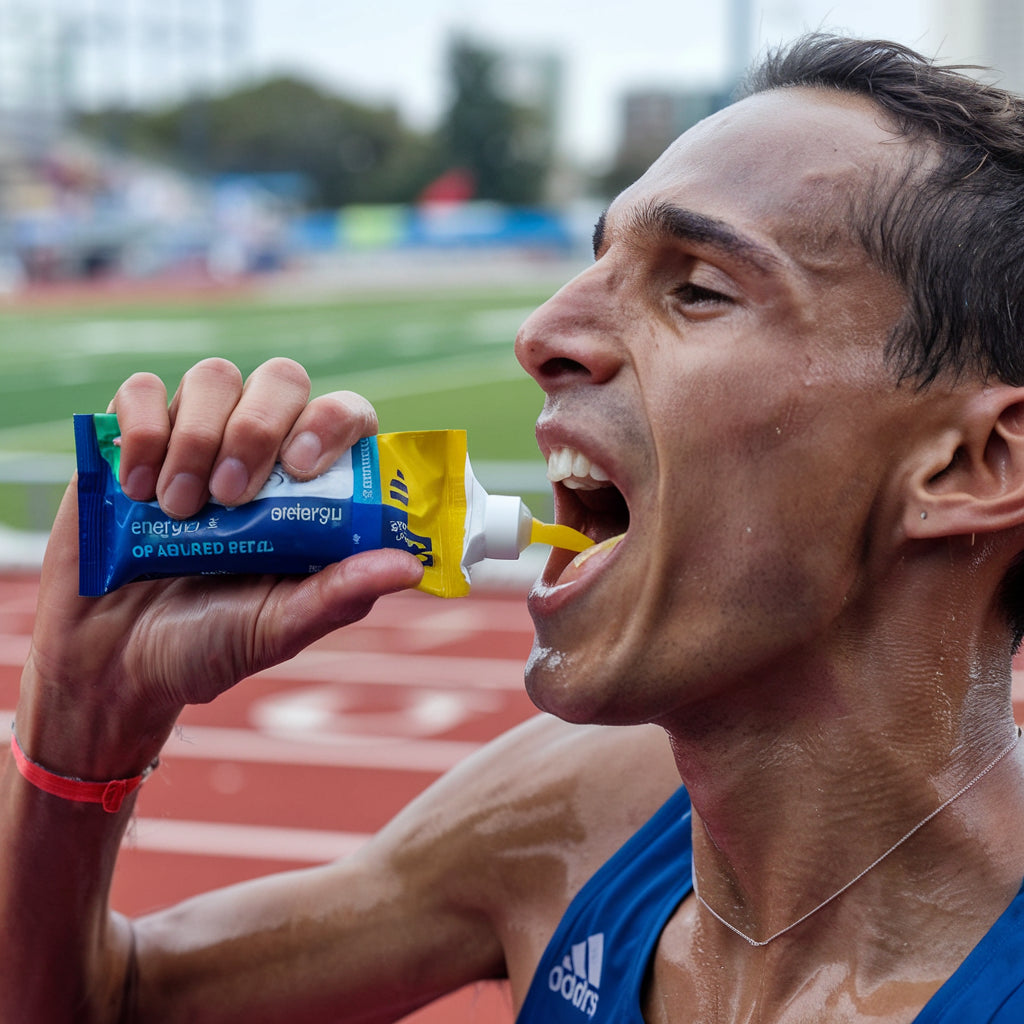
During the stress
🍼Regular fluid intake from about 45 minutes onwards. For longer runs, however, you should start replenishing fluids from the beginning to avoid an energy deficit.
___
🧂 Electrolytes: For longer training sessions or competitions, the intake of electrolytes is important. It is recommended to consume 200-500 mg of sodium per 750 ml of water.
___
🍞 Carbohydrates: For activities lasting longer than 45 minutes, carbohydrates should be consumed to maintain energy stores. Consume approximately 60g to 90g of carbohydrates per hour. Energy bars are not recommended.
___
As mentioned, ensure good nutrition on the bike after swimming to get through the race as well as possible. On the bike, carbohydrates and drinks can be easily absorbed due to the movement pattern, even under high stress. Those who have prepared well and trained with competition nutrition beforehand can consume up to 120g of carbohydrates per hour on the bike.
___
When consuming gels during a race or training session, make sure to drink enough fluids (even during training!). Replenishment every 20 minutes is recommended.
Unfortunately, during the final run, only about 90g of carbohydrates can still enter the body. The body cannot absorb more due to the vibrations. This must be considered to prevent stomach problems. This should also be well-planned and trained for.
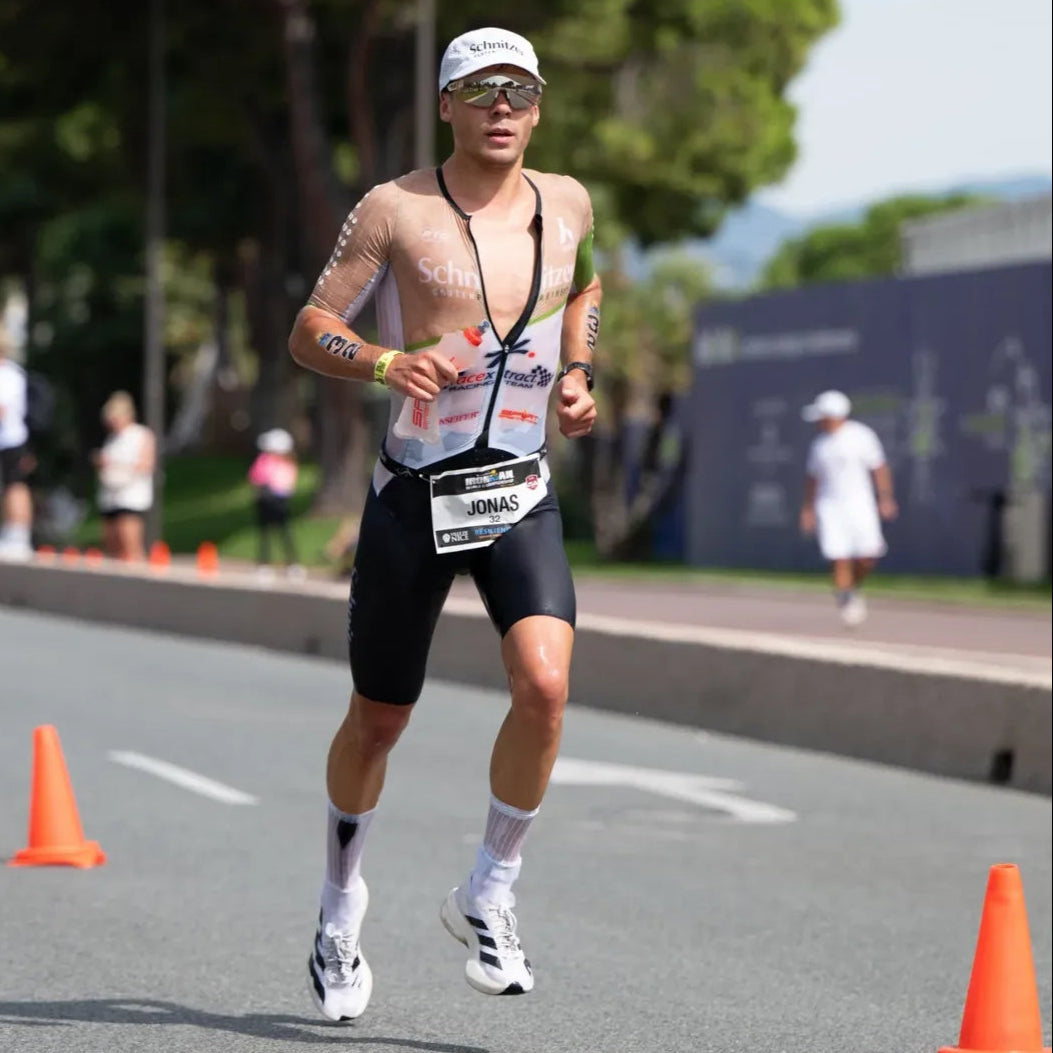
After the stress
🍞Rapid carbohydrate intake: Glycogen storage in the muscles is most effective in the first two hours after training/competition. A carbohydrate-rich meal (approx. 400-500 kcal, 60-70% carbohydrate) should be consumed as soon as possible. Carbohydrate:protein ratio of 3:1.
___
🍳Protein intake: 10-20 grams of protein should be consumed immediately after training or competition to support muscle repair and immune function. The guideline is approximately 0.2g to 0.4g of protein per kg of body weight.
___
🍼Rehydration: Fluid loss should be compensated. Sports drinks or fruit juice spritzes in a 2:1 or 1:1 ratio are recommended. DGE 🧂Electrolyte balance: Using drinks with electrolytes promotes optimal rehydration of the muscles.
___
The closer the protein and carbohydrate intake is to the end of exertion or a competition/training session, the better the effect. The open-window effect can already be reduced by protein intake, and glycogen stores fill up much faster than with later supply.
By following these nutritional strategies, athletes can optimize their performance and accelerate recovery. It is important that each athlete considers their individual needs and adapts their diet accordingly.
___
After a long-distance event, it is recommended to replenish fluids and nutrients (carbohydrates, proteins) as quickly as possible and possibly also take antioxidants to support the immune system. The risk of catching a cold or other infection due to a weakened immune system is particularly high at this time.
DGE Position Paper: Carbohydrates in Sports Nutrition DGE Position Paper: Fluid Management in Sports DGE Position Paper: Protein Intake in Sports DGE Position Paper: Energy Requirements in Sports
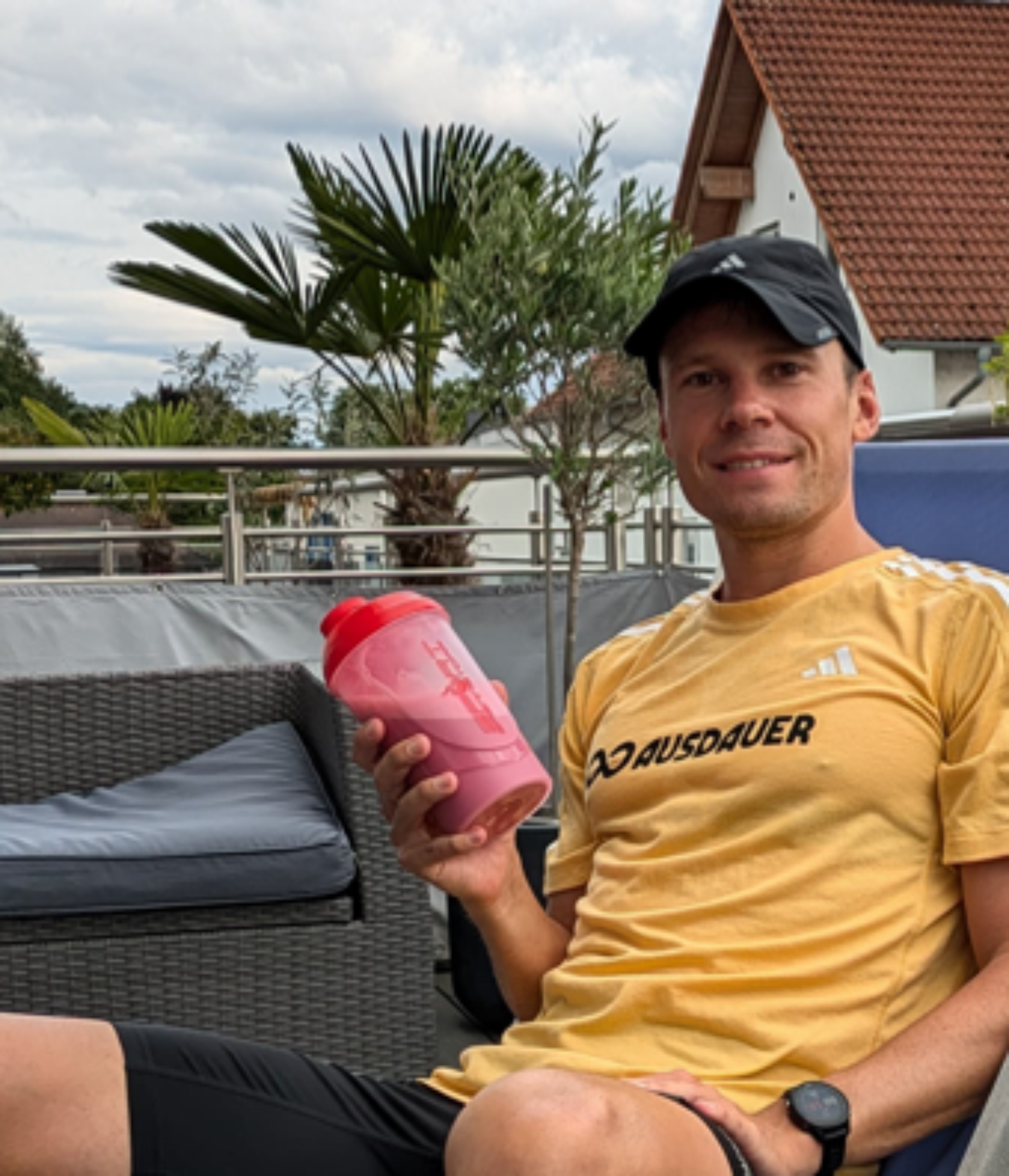
Nutrition Coaching at Sportbrennstoff
Our nutrition coaching provides you with personalized nutritional support tailored to your individual goals, training routine, and lifestyle. Whether you want to improve performance, enhance recovery, regulate your weight healthily, or simply increase your energy levels – we will work together to develop a practical nutrition plan that is easy to implement. Through regular feedback sessions and close support, we ensure that you benefit sustainably from your nutrition and achieve your goals with motivation.
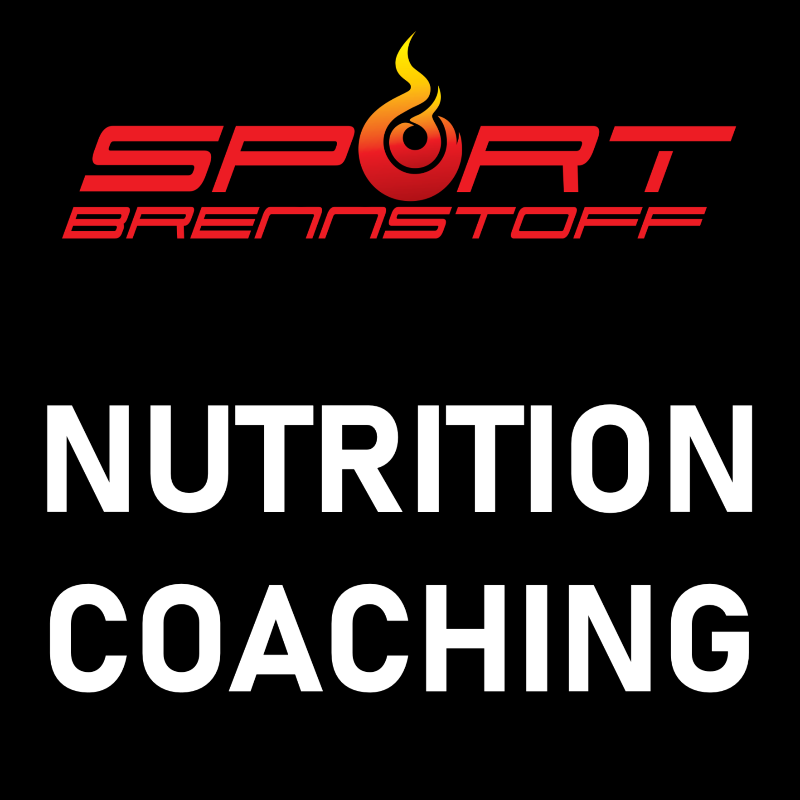
Let customers speak for us
from 258 reviewsIch empfinde das Produkt als top und geschmacklich auch sehr gut. Allerdings ist mir die Konsistenz bei der empfohlenen Dosis viel zu dick und reduziere die Menge.
Eines der besten Produkte die es auf dem Markt meiner Meinung nach gibt. Der Service zudem hervorragend.
Top - genau richtig und so wie‘s draufsteht! Geschmacklich neutral und nicht aufdringlich. Nicht süß und kein Kratzen im Hals.
Ich habe die Erholung wiederholt gekauft und finde es klasse!
Also wettkampfbasis verwendet - vor allem am Fahrrad als Versorgung - super vertragen und top versorgt.
Ich mag dass es sehr neutral schmeckt, und super für lange Einheiten ist! Alles drin was man braucht.
Funktioniert super, sogar derGroßvater hat es ausprobiert und ist sehr zufrieden mit dem Ergebnis des Produktes..
Gutes Produkt, bekömmlich und ohne Nebenwirkungen wie Unwohlsein, Völlegefühl
Ich habe seit Jahren Neurodermitis und habe so einige Sportgetränke ausprobiert und benutzt, aber Grundlage schmeckt mir nicht nur gut, sondern meine Haut verträgt es besonders gut, weil es Fruktose Frei ist. Keine roten Augen mehr die nach Stunden anfangen zu tränen.
Hervoragendes Kohlenhydrat für den Wettkampf. Ein wenig süß aber sehr magenverträglich. Habe vieles ausprobiert und mich auf Sportbrennstoff festgelegt.
Sehr wirksamsPulver,hab diesesProduk für lange Distanzen beim Ultratrail benutzt und war von der schnellen Kohlenhydrate Zufuhr sehr begeistert 👍
Klein, aber fein, gute Qualität
Guter Shaker
Wie immer beste Qualität
Top, sehr verträglich !
Stay in touch and well informed...
Become a member of the SportBrennstoff Club and receive an exclusive 10% discount on your first purchase.

Free shipping
from €60 in Germany and Austria

Hassle-free shopping
Satisfaction guarantee and transparent return conditions

Secure payments
Absolutely secure processing of all payments

Satisfied customers
Over 25,000 customers | ø 4.9 ⭐️ with +250 reviews
PRODUCT PORTFOLIO
INFORMATION
Environmentally conscious
Our packaging is environmentally friendly, and we participate in the Green Dot recycling system. Please support our efforts and recycle our packaging.
© 2025 SportBrennstoff®. All Rights Reserved
